Episode 149 – Stephanie Hudson

Podcast: Play in new window | Download
Subscribe: RSS
Introducing Stephanie Hudson
Stephanie is a geek, entrepreneur, inventor, and craft beer lover. Her passion is helping grow agencies to scale and thrive through her white label company, FocusWP.
Show Notes
LinkedIn | Left Brain
Facebook | Stephanie Hudson
Website | Focus WP
Preferred Pronouns | She/Her
Episode Transcript
Tara: This is Hallway Chats, where we meet people who use WordPress.
Liam: We ask questions and our guests share their stories, ideas, and perspectives.
Tara: And now the conversation begins. This is Episode 149.
Tara: Welcome to Hallway Chats. I’m Tara Claeys.
Liam: Welcome to Hallway Chats. I’m Liam Dempsey.
Tara: And I’m Tara Claeys. Today we’re joined by Stephanie Hudson. Stephanie is a geek, entrepreneur, inventor, and craft beer lover. Her passion is helping grow agencies to scale and thrive through her white label company FocusWP. Welcome, Stephanie. Thanks for joining us today.
Stephanie: Hey, you guys. It’s so nice to be here.
Liam: Stephanie, what a pleasure to meet you. Thanks for joining us. Can you tell us a little bit more about yourself, please?
Stephanie: Well, I have been in the WordPress space for about as long as there’s been a WordPress space. I’ve been making websites since dial-up days, which makes me feel super old. But currently I’m a Divi girl. I am on the Divi Chat Podcast. I like Divi but I’m not a hater of the other builders and things like that. I think we should all be able to get along. I’ve run an agency. I’ve freelanced. I’ve done all the things. I’ve had a full-time job with a boss who watched over my shoulder all day long. So I’ve done all of these things. And then I started to sort of take all that knowledge and mix it together.
We have a white label company, my business partner and I, where we do services for agencies. So I really am having a great time helping agencies to scale and grow. One of my favorite little pet projects is to take freelancers who are super insecure and give them a little pep talk before a proposal is due or something and help them to get more money, because they never think they’re worth it. So I’m just in general kind of a geek.
Tara: Well, and super positive too. I can tell you’ve got a lot of great energy. So that’s great. I think we have all of the major page builders represented here. Because I use Beaver Builder mostly, although I’m going to try Elementor soon. And Liam is an Elementor user. So we can now get along.
Stephanie: It’s hard days for Elementor right now.
Tara: Yeah, they’ve had a little rough time.
Stephanie: But Divi people understand because we’ve been bashed forever, you know?
Tara: Yeah. Well, the Divi community is huge. I mean, it really is…
Stephanie: It’s amazing. And it’s such a nice culture. I mean, when anything gets to a certain size, you have your haters and your trolls. But for the most part, it’s been incredible. And I really am not a side taker. I think it’s so silly that people think that’s worth fighting over. In fact, I just posted in a Facebook group this morning. Somebody was like, “Oh, I want to try a builder. What should I use?” And it’s like kwa kwa kwa. Every side is like…
And I said, “You know what, pick a tool and go with it.” You can build a great site in literally any of these builders. I just decided early on to stick to what… I was building sites in WordPress in general. I’m not like the best developer ever. I’m not the best designer. I’m more of the visionary type, and I can just get crapped on. But I was like, “I’m sick of trying to figure out a new theme every single time.” So I needed to find a company that had a lot of themes. And there was Elegant Themes, and they had a dozen or more, maybe 20 themes. So I thought, “I can serve any client I need to with this little toolkit.” And then before you know, it came Divi 1.0 and I was like, “Oh my gosh.” Because I think they were pretty much the first builder.
Tara: Yeah, there are some others.
Stephanie: But that was the first one…
Tara: …the other ones.
Stephanie: Oh, I don’t care. That was the first one I’ve ever seen it. And it was a very early days for that whole concept kind of. Anyway. Then I’d learn about other ones and I’m like, “I want to try that.” And I was like, “No, I’ve invested in this ecosystem. I’m just going to go with it.”
Tara: Awesome. Awesome.
Liam: I couldn’t agree with you more there.
Stephanie: I was going to say, what? Are we going to fight?
Liam: No. I don’t want to say they’re all the same, but they’re all hammers, right?
Stephanie: Exactly.
Liam: Or they’ll screwdrivers.
Stephanie: Exactly.
Liam: The amount of time it takes to learn how to use a new hammer and a new screwdriver often isn’t worth it. So I agree with you. Find one that works for you and run with that and let the others live for sure. For sure. Stephanie, I want to ask you about inventing?
Stephanie: Okay.
Liam: What have you invented?
Stephanie: Oh, my gosh.
Liam: Tell us about that.
Stephanie: I’m going to have to ask you to sign a NDA first possible.
Liam: Only if it’s 14 pages long.
Stephanie: I’ve said for years I need to marry a mechanical engineer or something because I can dream up so many things, but I don’t know how to make them. I’m that person that has notebooks full of doodles of all different things. Okay, I’ll give you a couple. I’ve invented an automatic rocking chair rocker. Really useful things like that I have invented in my mind. My all-time favorite one is a new umbrella. I’ve redone the umbrella. It’s such an annoying tool that we have. The driest spot on the umbrella is taken up by the stick. You can’t ever get there. Most of my things are improvements on things that already exist but I reimagine them. So anyway, that’s like one of my favorite little goofy things to do. I love it.
Tara: It’s really cool.
Stephanie: I mean, they never come to fruition. And I’m just one of those people that gets mad when stuff is made. I’m like, “That was my idea.”
Tara: Wow.
Stephanie: Nobody ever believes you though.
Tara: Stephanie, what was your path to WordPress? How did you even get started with WordPress?
Stephanie: I had a full-time job. I lived in Atlanta, I worked for Georgia Tech. I was the web developer for the College of Engineering. We had to rebuild that site. Somehow we evaluated a bunch and I ended up using Drupal. So Drupal was the go-to for a couple of years. And then I came to my senses, I found WordPress and I moved in that direction. And I have never looked back. That’s not true.
One time I did look back. Somebody said, “I have a Drupal site. I need some help,” or you know, some small little thing. And I was like, “I built a huge Drupal site back in the day. It’s unrecognizable and you can’t do…” I had a little stint with Joomla. Remember the good old Joomla too? Also terrible. So anyway, I made my rounds. And that’s just where I ended up.
Tara: Nice. Well, we’re glad you’re here.
Stephanie: Thank you. Me too.
Tara: How about the WordPress community? So you’re in the Divi community. Before you discovered that, were you involved in the WordPress community at all? Meetup? Anything?
Stephanie: Not a ton. I really got into the community through Facebook. It blows my mind actually how useful Facebook is to me for my business and for my sanity. But none of the front-facing, none of the grandmas posting things that they forwarded without fact-checking, none of the pictures of kids, none of the politics, none of this stuff that everybody thinks is Facebook. But it’s all the behind the scenes. It’s all the groups and the messenger chats that you have, and all these connections that you make. It’s unbelievable to me. I’ve never been much of a Twitter girl. It’s like never clicked. You know how we all have our ways. We all have our platforms that we like and stuff.
As far as community goes, though, I just think you can’t be Facebook for the groups and things like that. It’s just been so incredible. I am involved in the Divi community, but not exclusively. There’s so many general WordPress things. Actually, I have a Facebook group myself, because I got a little frustrated because it was like if I wanted to ask questions or reach out to people about this plugin, or speeding up a WordPress site or using this WooCommerce tool, so many groups were so niched down that it was… There’s a lot of Devi groups that I’m in and there was so many people that became like a hashtag in there—NDR (Not Devi Related). So it was like, because they wanted…everybody had a… There’s just so many other things to talk about.
If you build WordPress websites, whether you’re a freelancer or a small team, whatever, there’s a business there. There’s so many other things. Like, how do you set up your billing? What do you use for bookkeeping? What email program do you guys use? Do you use anything for your productiv…? There’s so many business things to talk about. And sometimes you just have what I call a bad entrepreneur day and you just need to be around other people who have been there or you need to have a cry or have somebody send you some good memes to cheer you up or something like that. You know, say like, “It’s alright, this project sucks. The next one will be okay.” You just need that.
So I created a little group called Focus on Your Biz because my company is called FocusWP. Anyway, that’s where I spend a lot of time to. Sort of that’s my little tribe in addition to all the other specific things. But I love it. It’s fun.
Liam: Yeah, I get what you’re saying about, you know, niche groups are great when you need that, but I could see how it’s a challenge. Because you join a new group and you don’t want to just jump in and like, “Hey, here’s all my needs. Can everybody help me right away?”
Stephanie: Exactly.
Liam: There’s a certain like, “Let me see if I can answer a question for somebody else. Let me contribute to the conversation. Let me build some respect in this community.” And then by that time the deadline and the need has gone. So it’s kind of helpful to have a group where it is more open-ended. and that can take time to grow. How are you going about growing that?
Stephanie: It’s growing kind of slowly. We only have a few hundred members. Now we’re close to 400, I think. And part of me wants to grow… you know, I look at I see some of these other groups, and they’re like, 2,000 people, 10,000 people, all this stuff. But then again, I’ve heard people say that 500 mark is nice—other colleagues that have groups. Because once you get past that, you have to start moderating. You have to start dealing with the struggles of it and stuff.
I’m a big networker. I’m very open to just sort of meeting people and having conversations. It almost always ends up something cool happening. I love it. So anybody that I talked to I’m like, “Hey, you should join my group.” And I send them a link and they do. So it’s sort of just been most everyone in the group has been brought in by me. Some people invite others and things like that but… And I talked about it on the podcast., the Divi Chat Podcast, a bit too just because that’s in my little intro. So it’s just growing slowly. It’s not a revenue generator for me or anything like that. It’s just sort of a nice place to be.
Liam: Yeah, I like that. Before we hit the record button, Tara was anxiously looking forward to hearing about your affection for craft beer. Maybe we can steer the conversation that way a little bit. What about craft beer do you like? Do you make your own beer? Do you just enjoy the different types?
Stephanie: Oh, no, no, no, no. A few years ago, I was thinking about truly trying to niche my agency. I have an agency called Sweet Tea Marketing. Because we’re in the south. We’re in Charlotte. I had a different business partner in that business and we were so tired of how many clients we get that have been basically just screwed over by their developers before. It gives our industry a bad name. It’s almost like we’re the used car salesman of the internet. Nobody trusts us. They always think we’re trying to get one over on them and things like that.
So we were trying to go with, like, “Ah, let’s go with Southern integrity and all this stuff.” So the fact that it was a beverage name was kind of… It was just something Southern. But then it ended up going down a road where I really wanted to niche down and find something. I’ve said for a long time, like, everybody always wants to figure out, “Oh, how do I pick a niche? How do I pick a niche.” And I’ve always sort of said, like, “If I had like two or three sites in any industry, I think I could make it a niche.” Because that’s what you need really. You just need some experience in that industry and some contacts and stuff.
So we happen to be working with a few breweries. And I love craft beer. And there’s an explosion of it, I mean, everywhere in the country, but Charlotte was really a big growth center there. So I joined the Guild. I went to the conferences and I sort of spun off a side thing where I called it Sweet Tea Craft Marketing. I ended up doing a video series with some guys in the industry. Because I would have beers with these guys and I thought, “Wouldn’t this be kind of funny to do a tasting show where one of them was a Cicerone trained beer…? Oh, he’s going to kill me that I can’t remember the name. But anyway, he’s Cicerone trained. So he’s like up there. Not that like top level where there’s only like 19 in the world, but he’s the one right below that. But still impressive.
And then there was another guy who was a home brewer. He was a Cicerone server. Which for those who don’t know, Cicerone is like a sommelier of wine. Cicerone is the beer version of that. So I said, “You know what we should do, guys? We should review beers together, and like have your perspective as this big shot, have your perspective as a home brewer, and then I’ll be like, ‘yeah, tastes good.'” So I learned so much about beer and all that.
It ended up morphing into I was talking about the packaging and the branding and all that stuff. It’s how the whole thing ended. It was just super fun. It was just the thing we did to just give a little recognition in the industry.
Tara: That is really fun. What’s your favorite beer at the moment? Do you have one?
Stephanie: I am an IPA girl. I know everybody. I like a juicy IPA. It’s not a real impressive favorite, but I can’t help it. I love it
Tara: It’s kind of like what happened to Malort, right, with that thing?
Stephanie: Yeah. Sideways?
Tara: Yeah. It’s now the same thing with the IPAs, but I’m in that camp as well. Like a hazy IPAs.
Stephanie: Hazy, yeah. I just love them. They’re so good. I don’t need a lot of fruits or fancy stuff. The milkshake one I don’t need. I don’t need all that. I just like the good old hazy IPA. Give me that any day.
Tara: Yeah, yeah. Well, that’s fun. That’s cool.
Liam: I’m at the other end. I’m more of a malt drinker, malt beer, Vienna Lager, Malt’s, and old beers. That’s what I like. Yeah.
Stephanie: Nice. See, now that’s so much cooler of an answer.
Liam: It is what it is. I don’t know that I did. It’s like cool. It’s just it is what it is. If it’s an IPA, it’s got to be a double because I don’t like the really tart… It’s not the tartness. It’s more the dryness..
Stephanie: Bitter. The hoppiness.
Liam: Yeah. So for whatever reason, if they double the IPA, whatever that means, it drinks a little smoother.
Stephanie: I’ll have to send you guys a link to the show notes to these series we did where I’m a dork and I don’t know anything. They just make fun of me the way I describe them, because they’re like, “Oh, I got banana notes.” I’m like, “What? This is in your beer?” They can just taste things that I can’t taste. It’s amazing.
Tara: My husband is a home brewer and a beer…
Stephanie: Oh, cool. So we always have beer on tap, which has been really nice during the pandemic because you can have… I’d say it’s nice because you can just have a little bit. You don’t have to commit to a whole bottle. But you can also have a little bit and then a little bit and then a little bit.
Stephanie: And then a little bit more. A little bit a lot of times.
Tara: Yes. So he taught me how. I’ve done it once. But he’s got it down to us…
Stephanie: You know, you look at the brewery, like the stereotype of the guy with the beard and the tattoos and all this stuff and the beanie, and there’s a certain connotation of that. I’m telling you what, these guys are chemists. They’re unbelievable.
Tara: It’s a science project and it’s also a janitorial kind of thing too. There’s a lot of cleaning and sterilizing that goes into it as well. Actually, I’ve gone to some meetup type things, presentations with women brewers. So that’s also a really growing trend as women.
Stephanie: It is. Women in the industry is huge.
Tara: That’s how it started. Men only got involved in making beer when it started to become an industry.
Stephanie: I know.
Tara: Women started it. So in honor of women’s history month I will…
Stephanie: That’s right. Yesterday or something was International Women’s Day.
Tara: Yes. Yes. Cool. Well, we could probably talk about beer and make Hallway Chats into the beer podcast.
Stephanie: Speaking of Hallway Chats, though, the hallway chats at the brewery conferences, oh, my gosh. You go to a brewery conference, it is so different than a WordCamp. You get there and when you get your little swag bag for attending the conference, it has a cup. And you just walk around. It’s like a branded cup or mug. And there’s just people pouring beer the whole place, all over. You just drink the whole entire time. So it was a fun niche to choose.
Tara: It is.
Liam: Yeah, that’s a smart move. I like that. Stephanie, I want to ask you one of our signature questions if I can.
Stephanie: Sure.
Liam: And it’s around success. The question is really, how would you define success? What is your definition? It can be a mixture of a personal definition or a professional definition? Or maybe for you it’s a combo? How do you define success?
Stephanie: That’s such a hard question. Can’t we just keep talking about beer, Liam? I think you guys are muting because they can’t hear you laughing at my jokes. I need the feedback, you guys. Come on.
Liam: I unmuted. Go ahead.
Stephanie: Okay, good.
Stephanie: Success. Success. How do you define success? I mean, you got to wake up in the morning and feel good about what you’re doing. You got to go to bed at night feeling like you accomplished something. To me, I mean, if we’re talking success, we’re in the United States of America, there’s going to be dollars involved. So what is success for me financially is I want to be able to not have to worry about my bills, I want to be able to take care of my family when they need it, and I want to be able to take a vacation once in a while. The V word that we never get to really talk about. So success is how you feel about what you’re doing, to me, and to have something that you can really be proud of that you’re doing. I like helping people so that brings me a feeling of success a lot of times.
Liam: Let’s talk about helping people. You mentioned at the start, or Tara read at the start of the show that you’ve got a business that helps agencies grow. Tell us about that. What does that mean day to day for you? What does that look like?
Stephanie: There’s a good backstory on it, especially appropriate for this show.
Liam: Please share. Please share.
Stephanie: I was at a WordCamp and there was a little… It wasn’t exactly a hallway. It was before the sessions began. There was a little Divi coffee and donuts meetup. So I went there and I was by myself. I am clearly not shy. I’m not a shy person. I’m very gregarious. But like in a conference setting, it’s like I can’t figure out the psychology of it. But it’s so awkward to be by yourself and to approach a group of people. But I have found that if you just have somebody standing next to you and two people approach your group, it’s not weird. I don’t know what that is. And you’re thinking I’m crazy right now, but the next time we’re ever allowed in public, you watch. It’s totally true. It’s just not as awkward.
So there was another guy there who I had just sort of met just casually. We were both at the coffee thing or whatever and we just chatted just for a couple of minutes. And then I walked away and I realized he didn’t know anybody there either. And a lot of the other folks did. I went back up to him and I said, “Hey, would you like to be my conference buddy today?” And he looked at me and said, “I’m sorry., what?” And I was like, “Yeah, do you want to be conference buddies?” And he was like, “Sure.” So we hung out all day. I mean, through the whole conference.
In our little then the hallway chats that he and I had, we were talking about our agencies. My agency, I had systematized maintenance and care plans. I loved care plan. This is before care plans were like… I know it sounds so hipster me. It was before care plans were cool guy. But I was really into it. They were super profitable for me. He was in the camp that like they were a pain in the neck. So we talked about all this stuff, we talked about our pricing, we talked about all these other stuff.
Then like a week after WordCamp was over, he sends me a text and says, “I just sent you an email. Don’t freak out. Read it.” And I opened my email, and he sent me a business plan. He said, “Let’s take this model that you’ve built, let’s perfect it, let’s build more stuff around it, and let’s do this as a business.” So we started doing care plans. And we found out that it really was a useful service for people. We white labelled it, so they get all the credit. We put their logo on their ports and everything.
But then we started to realize like, now that they trusted us with their websites to care for them, they would also say like, “Could you help me figure this out? Or could you do that?” or “I have this bill. Do you guys know anybody?” So we started doing little side projects and we realized, like, gosh, there’s so many more ways we could help. So we added on development services. And then we added on copywriting services. Because these are the things that are hard to find. There’s a million developers, but to find somebody that you can trust that isn’t going to flake on your project, or that has the skill set that they say they have, or there’s quality control involved.
I mean, we’ve all had projects where we hire somebody on a recommendation, or just we found them on Upwork or whatever, and they flake midway, and then you’re up pulling all-nighters the rest of the week to get the deadline done. So we wanted something that was reliable, that was really beneficial to these agencies, and something that they could mark up so they could scale and grow. Because so many of them are just one-man shops. And there’s just a capacity there. Like you really only have so many hours, and you’re really never going to take a vacation if it’s all on you. So to help them realize you can take on more work, you can offer services that you aren’t really maybe confident in. All of those things. So it went from just care plans to these services.
Then I started to realize they actually need like pep talks and a little… It’s not coaching. I do coaching, but I have been sort of leaning down a little bit of that road to say, like, “Here’s how you do this.” We just filmed a video series with someone who… it’s just going to be like a little one off thing. It’s like I helped her create a proposal. And it’s like she would come back to me after meeting with the client and I’d say like, “Okay, that was good. Now do this.”
We just did little things because there’s so many folks that are just insecure for no reason. We’re all in our little bubble and sometimes you just need somebody to say like, “Hey, you’re doing great. And Gosh, darn it, people like you.”
Liam: Thank you Stuart. Homage to Saturday Night Live. Appreciate that.
Stephanie: That didn’t answer your question at all actually. That doesn’t tell you what my day looks like. But that’s what we do.
Liam: We can extrapolate it from that. That’s a good answer. I’ll take it. Thank you.
Stephanie: I still do have my agency. I love having an agency. It’s always been my thing. We are helping clients too. But lately, people come to me for a quote, and I’m like, “Oh, I don’t want to do that. I want to go work with agencies.”
Liam: Let’s talk about that. How do you balance that? Because I mean, we have a passion, and it sounds like your business and your passion is focused now on this business, on FocusWP. But if somebody comes to you and says, like, “Look, I got 10 grand, or I got 5 grand, or I’ve got 2 grand or whatever it is, we trust you, can you do it?” It can be a challenge to say n… And if big enough, they’re good people, and you’ll like them kind of thing, even if it’s not where you want to focus, how do you handle that? How do you approach that?
Stephanie: Well, I’m actually in a big transition period right now, because it’s been possible to do both up till this point. And I’m sort of hitting that phase where it isn’t. So outsourcing. With FocusWP, that’s one of the things I preach, and I do it. I happen to be fortunate that I have this awesome team, you know, like all these teams actually of developers and writers and everything. So I do use that to fulfill a lot of my projects.
I’m in the process now of getting it, like really tightening up all of my systems and things like that. And then at some point in the near future, like within the next year, we’re going to have to have a talk about either just scaling back or selling… Some change is coming. It’s all brewing right now. So I am in a bit of a transition phase.
Tara: Yeah, transitions are challenging, interesting, fun, all of those combined. What’s your biggest challenge? What do you find challenging?
Stephanie: Saying no.
Tara: Okay, that was a quick answer
Stephanie: Well, yeah, because I like helping people. And people come and they’re like, “Oh…” My favorite phrase always is “what if?” So people come and talk to me and I’m like, “What if you did this?” So it’s hard for me to not like… I can get on a call with somebody who needs one little thing and we can turn it into a big project, which is a really nice treat to have. That’s something I’m proud of that I can do. But at the same time, it’s hard to… I’m really trying to stick to what my agency is best at, which is branding and web. Like, let’s just stick to that. Let’s stop helping people figure out how to run a podcast on their own. Let’s stop figuring out how to help people set up their Google Mail. Let’s just stick to what I’m good at, and let other people do the other thing. That’s one of the things I’m really working on right now.
Tara: Great. Thanks for sharing that. I’m going to ask you another question that we ask all our guests, which is about advice. And if you have received some advice that you’ve implemented, that you’ve taken to heart, and that’s helped you that you would share with us.
Stephanie: This is a weird one. I’ve talked about this on a couple of other podcasts I think. It always seems to work. It wasn’t advice somebody directly gave me. But about, gosh, 15 years ago, maybe I read this book called “The year of Yes.” This kind of ironic since I just said saying no is my hardest thing. But I didn’t mean to pair those two up that way. But this book was written up… not even about business at all. It was written about dating. This girl was always choosing people that were bad for her and she realized she had a pattern. And she thought she knew what she wanted. But when it came down to it, clearly she didn’t because she kept getting into these terrible relationships. So she spent an entire year and said yes to everything. Not everything. But any person.
Tara: Yeah, I think I heard her on some podcasts. Yeah.
Stephanie: Any person who approached her. She lived in New York City so there was a lot of interaction with strangers and things like that. So she went on a date with a cab driver, with a homeless guy, with a rich guy. And the person she ended up with in the end—I won’t spoil in case you want to read The Year of Yes—it was somebody that she would have never in a million years thought would work. She’s super happy with, and all that.
That was a good mindset shift for me when I read that book, and it affected me in different areas of my life to stop thinking that I know what I want or need. There’s just so many opportunities and so many different things.
Liam: Yes is good. Yes is a powerful thing. I know we talk a lot about saying no, but saying yes can get us out of our comfort zone, can push us a little bit, and can open up new doors that we might not otherwise have ever thought about.
Stephanie: I call it ‘being proactively open-minded’ is my phrase that I’ve coined.
Liam: I like that. I like that. Because it’s easy to think of ourselves as open-minded, but to do it right, we have to be aware of where our limits are and acknowledge that they’re not as open as we think they might be.
Stephanie: And sometimes being open-minded is like we’re open to things that come to us if we think about being open-minded. But that’s why I think of being proactive about being open-minded. Again, with the theme of this show, is like getting into those conversations with people in the hallways at WordCamps and meetups and things. Like you guys started a whole podcast because of all the good that comes of that. And it’s different now because we can’t be in person, but you can still have that. You can still approach people. You can still build relationships. You can still network. You can still get involved in the community that is online at least. The things that come from it are incredible.
I mean, I have a whole new business and a whole passion because of a conversation that happened at a WordCamp, and then the relationships in the tribe I’ve built is all just from doing that online. It’s really a super powerful thing.
Tara: Thanks for sharing that. I totally agree. And I think part of that open-mindedness too is listening. Listening to what other people are sharing and hearing their stories and their ideas and seeing what you can take from that and implement in your own life, which I’ve really… I mean, that’s part of Hallway Chats for me is hearing people’s definitions of success and thinking, “Huh, that’s interesting. I wonder how I could implement that in my life.” So I think that’s also being open-minded is listening.
I appreciate being able to listen to you today so much. Thanks for joining us. I’m sorry that we are out of time.
Stephanie: This was fun, you guys.
Tara: Yeah. Thanks so much for being on Hallway Chats. Where can people find you online, Stephanie?
Stephanie: You can find me at focuswp.co or you can hit me up in my Facebook group. It’s called Focus on your Biz.
Tara: Great.
Liam: Stephanie, thank you so much for joining us. What a pleasure to get to know you today. I really appreciate it.
Stephanie: This was fun, you guys.
Tara: Bye-bye.
Tara: If you like what we’re doing here – meeting new people in our WordPress community – we invite you to tell others about it. We’re on iTunes and at hallwaychats-staging.ulpgsyz6-liquidwebsites.com.
Liam: Better yet, ask your WordPress friends and colleagues to join us on the show. Encourage them to complete the “Be on the show” form on our site, to tell us about themselves.
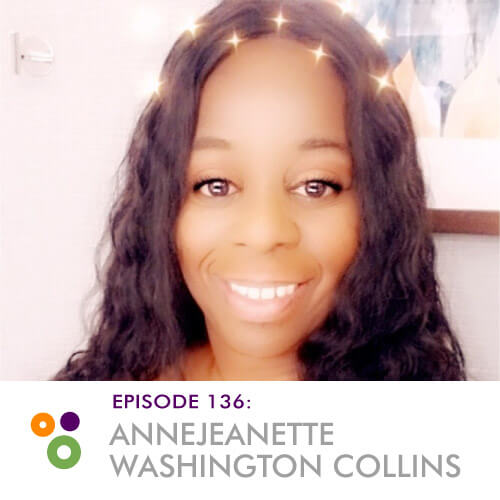
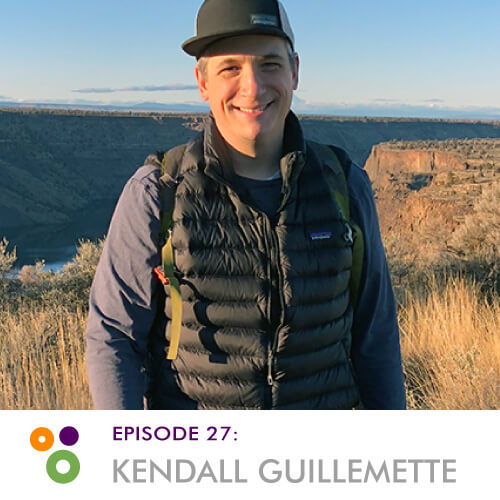
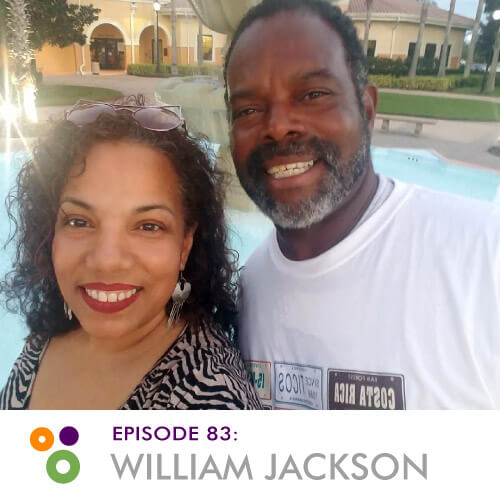
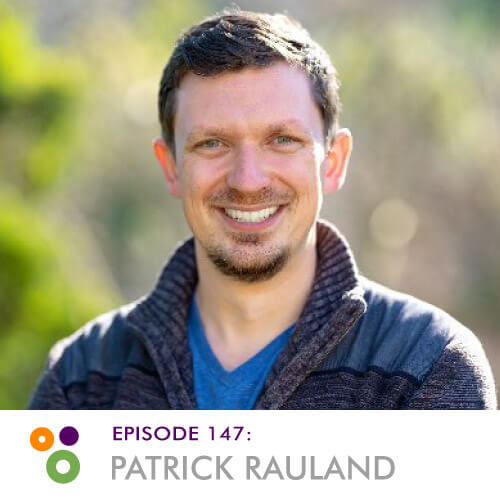

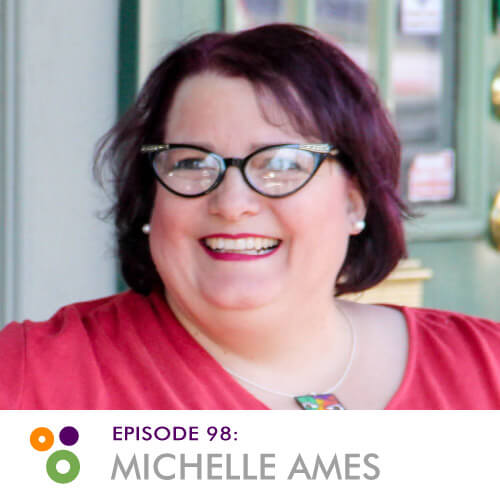
2 Comments